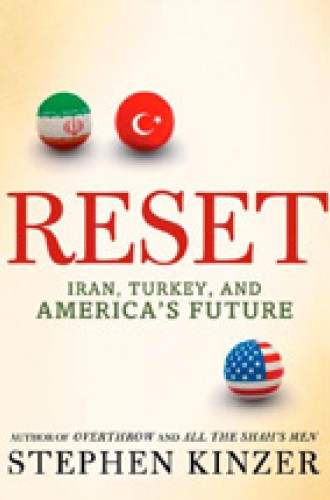A review of Reset
In the Middle East, the United States has poured money and arms into two principal allies: Israel and Saudi Arabia. Oil, strategic considerations and domestic constituencies have guided these policies. But today, with Iraq a mess and Israeli-Palestinian relations at a nadir, the U.S. would do well to rethink its regional approach. After the confrontational policies of the Bush years, the Obama administration has promised a reset of relations with Russia. In Reset: Iran, Turkey, and America's Future, Stephen Kinzer argues that the U.S. should push the reset button in the Middle East as well. Instead of focusing so much on Israel and Saudi Arabia, the U.S. should take a new look at Iran and Turkey. By effecting a rapprochement with the former and deferring to the latter as a mediator, Kinzer maintains, the U.S. can help bring peace and security to a region that has had a shortage of both.
Kinzer is an evocative writer and knows this territory well. He has served as a foreign correspondent in Europe, Latin America and Turkey and has recently written a book on Iran (All the Shah's Men). In Reset he traces the parallel modernization of Iran and Turkey and their efforts to become Muslim democracies. With its many fascinating stories about modernizers, insurgents, dictators and generals, Reset is an excellent guide for those who know little about the 20th-century history of these two countries with rich and complex cultures.
For all the book's virtues, however, Kinzer gets bogged down in this history. Although he promises an analysis of how Turkey and Iran should figure in America's future, he doesn't get to the present until more than halfway through. Then, after finally bringing both Iran and Turkey into the post-9/11 era, Kinzer embarks on an elaborate detour into U.S. relations with Israel and Saudi Arabia when a relatively brief summary would have sufficed. Only in the last chapter does Kinzer return to the essential question he poses at the outset: how to "reset American policy in the world's most volatile region."






